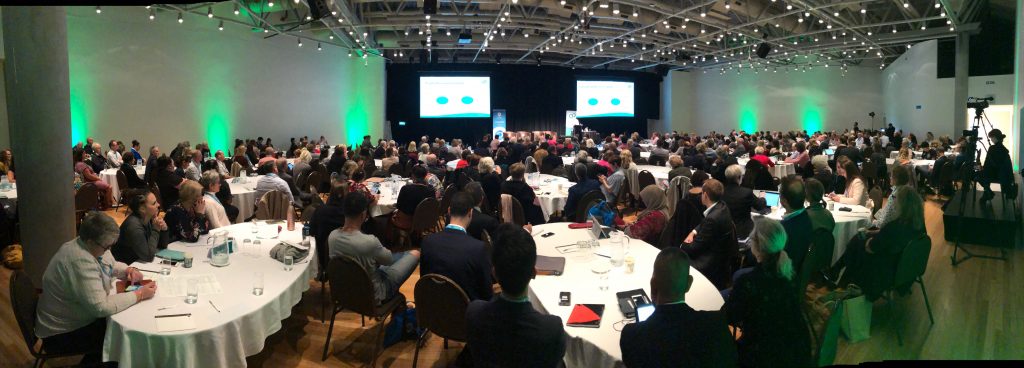“To go fast, go alone. To go far, go together”
By Steven Moe
Returning from a conference it is always important to reflect on some of the themes and key learnings while they are fresh. I’ve just come back from three days at Te Papa with around 500 attending the biennial Philanthropy Summit 2019 which is organised by Philanthropy New Zealand
Conference Overview
The theme was “The Future of Trust” and the conference was organised by Philanthropy New Zealand with 19 sponsors such as AMP Capital (and a big shout out to Rebekah Swan and Emily Woodland who invited me along). I enjoyed attending the conference because it got me out of the silo of only being with other lawyers or professionals – there were few of those here. Instead, those in attendance were mainly from large and small Community Trusts, private family foundations as well as people on the ground working in a variety of charities and social enterprises. Keynote speakers included Sir Stephen Tindall and Dr Jane Goodall – there were 9 key notes in total. There were also many workshops with 4 sessions of breakouts and 8 running at each for a total of 32 sessions. I counted in the program at least 140 different speakers who were involved in delivering content and there were around 500 who attended.
The event was curated well with a particularly noticeable and really beautiful strand woven through of Te Ao Maori that went beyond mere tokenism – for example, not only did key note speakers have a song sung for them when they finished, some of the topics tackled were thorny and not easy to grapple with (such as one key note “Undoing colonialism to do good: building constructive relationships between philanthropy and tangata whenua”). That session (discussed below) really raised the difficult – often ignored – issues around the current state of our society.
My hat is off to all of the volunteers and organisers led by Sue Mcabe and Yvonne Trask. These events take a lot of mahi – the content described below is good but just as important are the connections made over coffee or lunch, collaborations started and ideas shared that may only have measurable ripples some years in the future. It is possible that thought leaders in an area have connected with others and through challenges received each of their research and understanding will go deeper. The “vibe” in the room was not one of white privilege giving out grants – instead questions were being asked of how change can be empowered and enabled at a structural level and new ways of thinking about philanthropy encouraged – both from a Te Ao Maori perspective as well as looking to the next generation and harnessing their ideas as well as recognising the diverse ethnic communities in Aotearoa.
The Themes
As a way to break down the main theme of “The Future of Trust” there were many breakout sessions that you could choose from often centred around the following four themes:
• Future trends in Philanthropy: What changes are coming?
• Building trust: engagement and relationships and how to build them to in turn build capability
• The work we do: the “how-to” and a focus on the practical side to enable bigger change
• Impact: what difference are we making and how do we know?
A full description of the sessions is over here. Just a few of the key themes and questions that emerged were the following.
• The next generation is not trusting institutions and looking for online recommendations/social media guidance – threat and opportunity;
• Consumers have desire to do good with their dollar and technology enables them to do that;
• What form does new reporting take on impact?;
• Is there a new paradigm coming where business itself is transformed
• how do you actually measure “impact” across diverse sectors and drivers;
• how you report on it – what shape will reports in the future take and will their be standards of how you talk about impact?
• What due diligence is needed into an entity beyond the usual financial checks when you are also concerned about impact?
• How do you build a community of investors who are willing to think in this way and could there be co-investment opportunities?
• How much do we each know about the past and have we thought about what the implications are for the present?
• What does meaningful engagement look like and what shape does that take?
• how do you transfer wisdom between generations – is it a baton passing? Is it another wave rolling in? Do you reinvent / disrupt the old ways or adapt the old and combine with new thinking?;
• how do you identify and encourage those young people with skills coming up and give them opportunities for leadership – and potentially failure too – so that they can learn and grow;
• What does the next generation need, particularly millenials, who may want to be fluid with how they use their time and what they are supporting/




